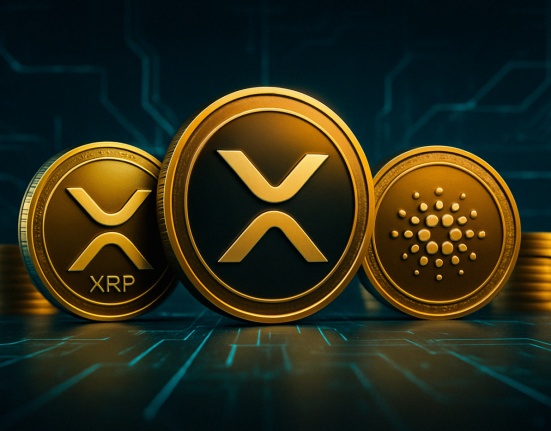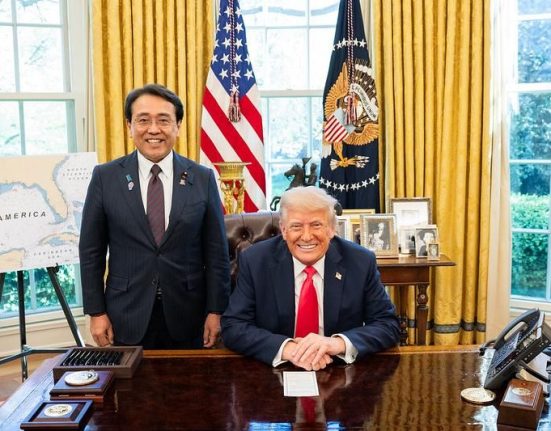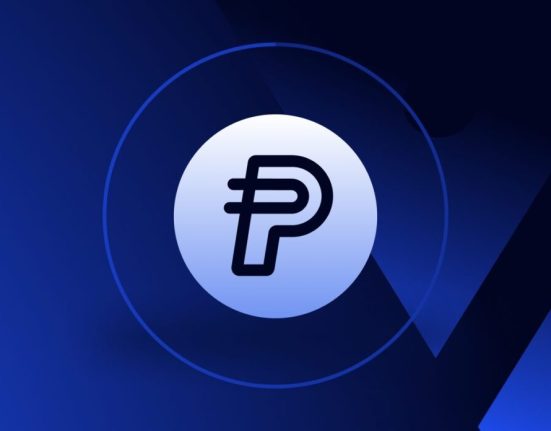NEW YORK, NY / ACCESS Newswire / July 28, 2025 / For decades, sustainability markets operated like closed clubs-built by corporations, governments, and financial institutions to serve insiders. Well-meaning mechanisms like carbon credits, ESG funds, and recycled material schemes promised change. But in reality, they delivered profit without accountability, concentration without inclusion, and left most of the world on the sidelines.
That dynamic is finally shifting.
SMX (Security Matters) (NASDAQ:SMX), a pioneer in physical-to-digital supply chain systems, is building infrastructure that links sustainability to value-tangibly, traceably, and accessibly. At the center of its platform is a new system that converts verified recycling into compliance-grade credentials: real-world materials, tracked in real-time, available to both companies and individuals.
And now, that system is poised to scale-thanks to a game-changing policy milestone.
A New Legal Framework for Real Accountability
The recent passage of the GENIUS Act, signed into law by President Trump, delivers the first comprehensive U.S. policy framework supporting next-generation asset structures and traceability infrastructure. While much of the attention focused on its implications for finance, the deeper impact is structural-it legally validates the use of modern verification systems across supply chains, recycling, and ESG reporting.
In other words, the law establishes the regulatory framework for the system SMX has already built.
SMX’s patented technology embeds encrypted markers into materials like plastic, textiles, metals, and liquids-assigning each item a unique identity and lifecycle trail. This enables real-world recycling and reuse to be captured, verified, and turned into performance data-usable by governments, brands, and investors.
To support this ecosystem, SMX recently launched SMX (Treasury and Asset Holding Company) Limited, a wholly owned Irish subsidiary that allows the company to expand its sustainability-linked infrastructure across both operational and financial use cases.
This isn’t a symbolic treasury play. It’s a structural mirror of SMX’s mission-linking value, integrity, and accessibility at every level.
From Exclusive Markets to Open Participation
What makes SMX’s model especially timely is how it intersects with a broader generational and geographic shift in finance. Younger investors now manage money through phones, not banks. In much of the world, traditional financial infrastructure has been skipped entirely-replaced by mobile platforms and decentralized wallets.
And yet, until now, sustainability investing has remained largely closed off. ESG funds may be booming, but they often rely on abstract ratings, generalized claims, and access limited to institutions.
SMX’s system changes that. It offers a way for everyday individuals to engage with-and profit from-verified environmental recovery. Whether someone is collecting recyclable materials in Malaysia or promoting circularity from Berlin, SMX provides them with a way to hold a credential that reflects real, measured action.
This approach empowers users to participate in markets once reserved for brokers, billionaires, or global conglomerates. And unlike many legacy systems, SMX’s credentials aren’t symbolic-they’re tied to physical outcomes, updated in real time, and ready for use.
Sustainability You Can Prove-and Use
Each SMX-issued credential represents a unit of recycled plastic that’s been marked, tracked, and validated through a closed-loop system. These units aren’t based on projections or voluntary pledges. They’re the product of real recovery, processed through verifiable systems, and structured to meet growing global policy demands.
This matters more than ever. From the EU’s Circular Economy Action Plan to California’s SB 54 mandates and India’s extended producer responsibility rules, industries are facing a new reality: compliance isn’t optional, and performance must be proven.
SMX’s credentials serve as portable, transferable records of that performance. Governments can use them to enforce rules. Brands can apply them toward mandates. Investors can rely on them as audited ESG assets. In a landscape defined by accountability, these units are rapidly becoming a new kind of utility-backed by data, not declarations.
And they’re not just useful. They’re increasingly valuable.
Qualified, legally recognized recycled material is in short supply. Verified credentials linked to those materials are even scarcer. That creates built-in scarcity-where demand is driven not by speculation, but by regulation. As mandates tighten and audit requirements increase, these proof assets stand to become essential inputs to global compliance-and highly liquid in the process.
ESG Grows Up, Participation Widens, The Middleman Disappears
There are trillions of dollars in ESG-aligned funds globally, but one of the biggest critiques of the sector is its lack of substance. Investors want real-world proof. Regulators want audit-ready results. And the public wants a way to engage directly.
SMX answers all three.
Its credential system offers something ESG markets have lacked: outcome-based sustainability infrastructure that works across industries, geographies, and capital structures. This isn’t speculative. It’s record-backed, AI-powered, and purpose-built for mainstream adoption.
It could underpin the next generation of ESG-linked investments-from ETFs to institutional allocations-while allowing individuals to participate with no barriers to entry. Because the future of environmental finance isn’t going to be defined by headlines, indexes, or legacy gatekeepers.
It’s going to be powered by platforms that prove what they promise.
And it will be open to everyone.
References and sources:
-
Digital Banking Adoption Statistics (2024) – 77% of U.S. consumers prefer digital banking; 80% of millennials and 72% of Gen Z use mobile-first financial services. – Bankrate
-
The global fintech sector saw its revenues increase three times that of the finance sector as a whole in 2024, as it enters a new “era of maturity”. – Computer Weekly
-
Carbon Credit Market Criticism – Oil majors are the biggest players in voluntary carbon markets, raising transparency concerns. – Carbon Market Watch
-
Digital financial services to improve formalized access and inclusion. – Poverty Action Lab
-
Plastic Cycle Token and Market Design – SMX’s Plastic Cycle Token creates traceable, tradeable plastic reuse verification in response to new sustainability quotas. – Recycling Product News
-
What’s Plaguing Voluntary Carbon Markets? – CSIS.org
-
What is artificial intelligence (AI) in finance? – IBM.com
-
California SB 54 – California’s SB 54
-
A Guide to EPR Compliance in India – Recykal
-
ESG and sustainable investment outlook – Broadridge
About SMX (Security Matters) Public Limited Company
As global businesses face new and complex challenges relating to carbon neutrality and meeting new governmental and regional regulations and standards, SMX is able to offer players along the value chain access to its marking, tracking, measuring and digital platform technology to transition more successfully to a low-carbon economy.
Forward-Looking Statements
The information in this press release includes “forward-looking statements” within the meaning of the Private Securities Litigation Reform Act of 1995. Forward-looking statements include, but are not limited to, statements regarding expectations, hopes, beliefs, intentions or strategies regarding the future. In addition, any statements that refer to projections, forecasts or other characterizations of future events or circumstances, including any underlying assumptions, are forward-looking statements. The words “anticipate,” “believe,” “contemplate,” “continue,” “could,” “estimate,” “expect,” “forecast,” “intends,” “may,” “will,” “might,” “plan,” “possible,” “potential,” “predict,” “project,” “should,” “would” and similar expressions may identify forward-looking statements, but the absence of these words does not mean that a statement is not forward-looking. Forward-looking statements in this press release may include, for example: matters relating to the Company’s fight against abusive and possibly illegal trading tactics against the Company’s stock; successful launch and implementation of SMX’s joint projects with manufacturers and other supply chain participants of steel, rubber and other materials; changes in SMX’s strategy, future operations, financial position, estimated revenues and losses, projected costs, prospects and plans; SMX’s ability to develop and launch new products and services, including its planned Plastic Cycle Token; SMX’s ability to successfully and efficiently integrate future expansion plans and opportunities; SMX’s ability to grow its business in a cost-effective manner; SMX’s product development timeline and estimated research and development costs; the implementation, market acceptance and success of SMX’s business model; developments and projections relating to SMX’s competitors and industry; and SMX’s approach and goals with respect to technology. These forward-looking statements are based on information available as of the date of this press release, and current expectations, forecasts and assumptions, and involve a number of judgments, risks and uncertainties. Accordingly, forward-looking statements should not be relied upon as representing views as of any subsequent date, and no obligation is undertaken to update forward-looking statements to reflect events or circumstances after the date they were made, whether as a result of new information, future events or otherwise, except as may be required under applicable securities laws. As a result of a number of known and unknown risks and uncertainties, actual results or performance may be materially different from those expressed or implied by these forward-looking statements. Some factors that could cause actual results to differ include: the ability to maintain the listing of the Company’s shares on Nasdaq; changes in applicable laws or regulations; any lingering effects of the COVID-19 pandemic on SMX’s business; the ability to implement business plans, forecasts, and other expectations, and identify and realize additional opportunities; the risk of downturns and the possibility of rapid change in the highly competitive industry in which SMX operates; the risk that SMX and its current and future collaborators are unable to successfully develop and commercialize SMX’s products or services, or experience significant delays in doing so; the risk that the Company may never achieve or sustain profitability; the risk that the Company will need to raise additional capital to execute its business plan, which may not be available on acceptable terms or at all; the risk that the Company experiences difficulties in managing its growth and expanding operations; the risk that third-party suppliers and manufacturers are not able to fully and timely meet their obligations; the risk that SMX is unable to secure or protect its intellectual property; the possibility that SMX may be adversely affected by other economic, business, and/or competitive factors; and other risks and uncertainties described in SMX’s filings from time to time with the Securities and Exchange Commission.
Media Contact For This Release:
info@hawkpointmedia.com
SOURCE: SMX (Security Matters) Public Limited
View the original press release on ACCESS Newswire
Information contained on this page is provided by an independent third-party content provider. XPRMedia and this Site make no warranties or representations in connection therewith. If you are affiliated with this page and would like it removed please contact pressreleases@xpr.media







